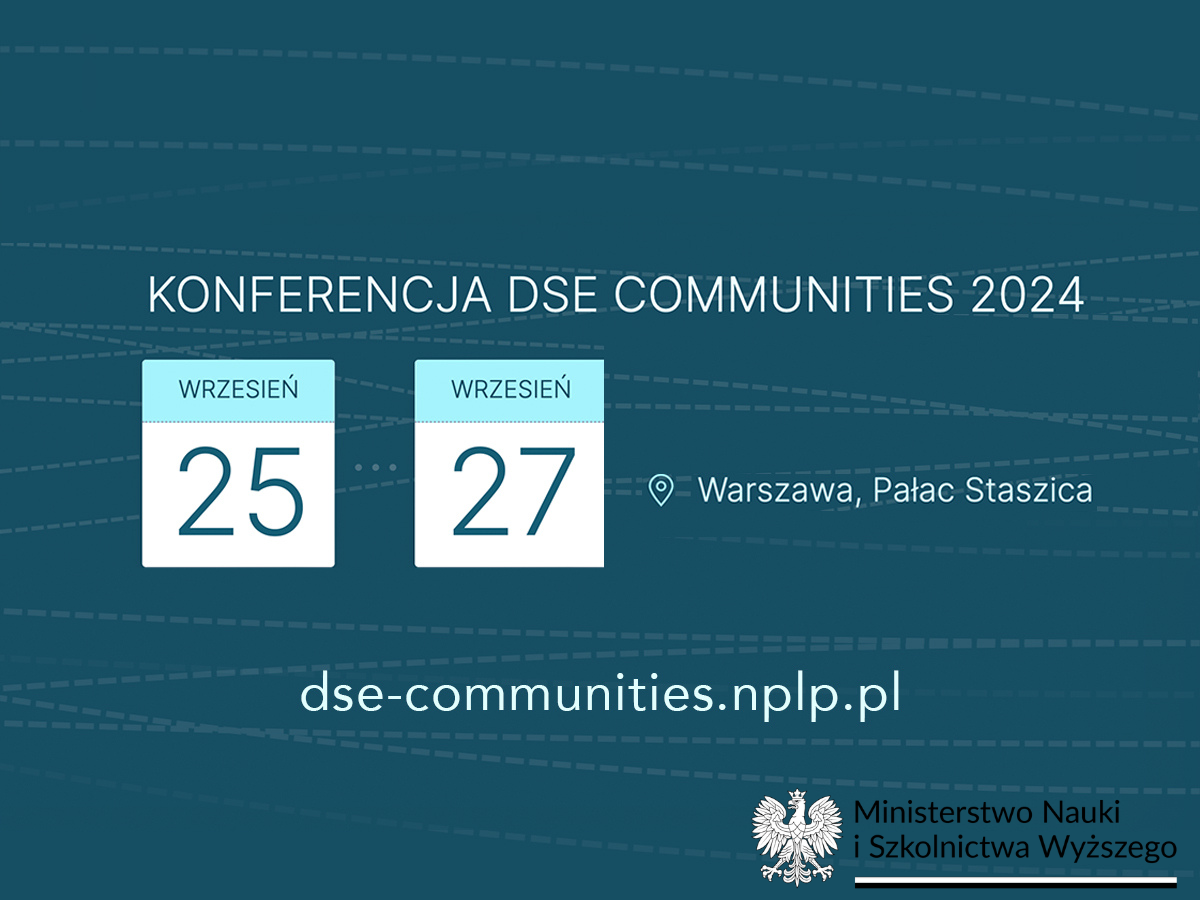Событие
(Mikro)społeczności praktyk naukowego edytorstwa cyfrowego (Digital scholarly editing (micro)communities of practices)
Pracownia Edycji i Monografii Cyfrowych Instytutu Badań Literackich Polskiej Akademii Nauk zaprasza do udziału w konferencji międzynarodowej: (Mikro)społeczności praktyk naukowego edytorstwa cyfrowego (Digital scholarly editing (micro)communities of practices) planowanej w dniach 25-27 września w Warszawie w Pałacu Staszica - w formie hybrydowej.

Organizatorzy pragną przyjrzeć się potrzebom i wyzwaniom związanym z tworzeniem naukowych (krytycznych) edycji cyfrowych z perspektywy wybranych społeczności, np. edytorów tekstów dramatycznych, badaczy danych z języków innych niż angielski, grup skupionych wokół danego twórcy czy okresu historycznego.
Szczegółowy opis tematyczny w języku angielskim znajduje się tutaj: https://dse-communities.nplp.pl/call-for-contributions.
Zgłoszenia przyjmowane są do 15 czerwca. Konferencja odbędzie się w jęz. angielskim.
Dla uczestników stacjonarnych przewidziana jest opłata konferencyjna w wysokości 150 euro.
Wydarzenie jest dofinansowane ze środków budżetu państwa, przyznanych przez Ministra Edukacji i Nauki w ramach Programu Doskonała Nauka II.
Информация
Смотреть также
FAIR Heritage: Digital Methods, Scholarly Editing and Tools for Cultural and Natural Heritage (virtual meeting)
A plethora of data about cultural and/or natural heritage is nowadays available to both public and private institutions (e.g., universities, libraries, archives, museums, etc.). These data are highly heterogeneous in terms of both formats and contents. In addition, the way in which they are organized and characterized depends on the socio-cultural contexts of different working communities, their research methodologies, languages, and ways of thinking. As a consequence of this heterogeneity, it is hard to find connections across multiple datasets or to agree on data publishing policies and shared vocabularies to describe data in a common manner. (http://www.lestudium-ias.com/event/fair-heritage-digital-methods-scholarly-editing-and-tools-cultural-and-natural-heritage)
Cultures of Dissent in Eastern Europe (1945-1989): Research Approaches in the Digital Humanities
This 7-day seminar in digital humanities research methods is designed to expose a new generation of scholars in Cold War history and culture to methods of analysis and discovery involving computational techniques. Designed and run by NEP4DISSENT (New Exploratory Phase in Research on East European Cultures of Dissent), COST Action 16213, the inspiration for the course is built around the transfer of knowledge from technologists and data scientists to humanists.
PUBMET2020 / The 7th Conference on Scholarly Communication and Publishing in the Context of Open Science
We welcome you to take part in PUBMET2020 conference, which strives to present and discuss the plurality of approaches to the scholarly communication, scholarly publishing and assessment (metrics). It will present innovative approaches, best practice discussions and take on future challenges. (http://pubmet.unizd.hr/pubmet2020/)
Digital Humanities 2020
The theme of the conference is “carrefours/intersections,” a place where paths cross. The theme recalls the geographical and cultural heritage of Ottawa, a bilingual city in unceded Algonquin territory. Three specific sub-disciplinary interests will guide our use of the theme: First Nations, Native American, and Indigenous Studies; public digital humanities; and the open data movement.